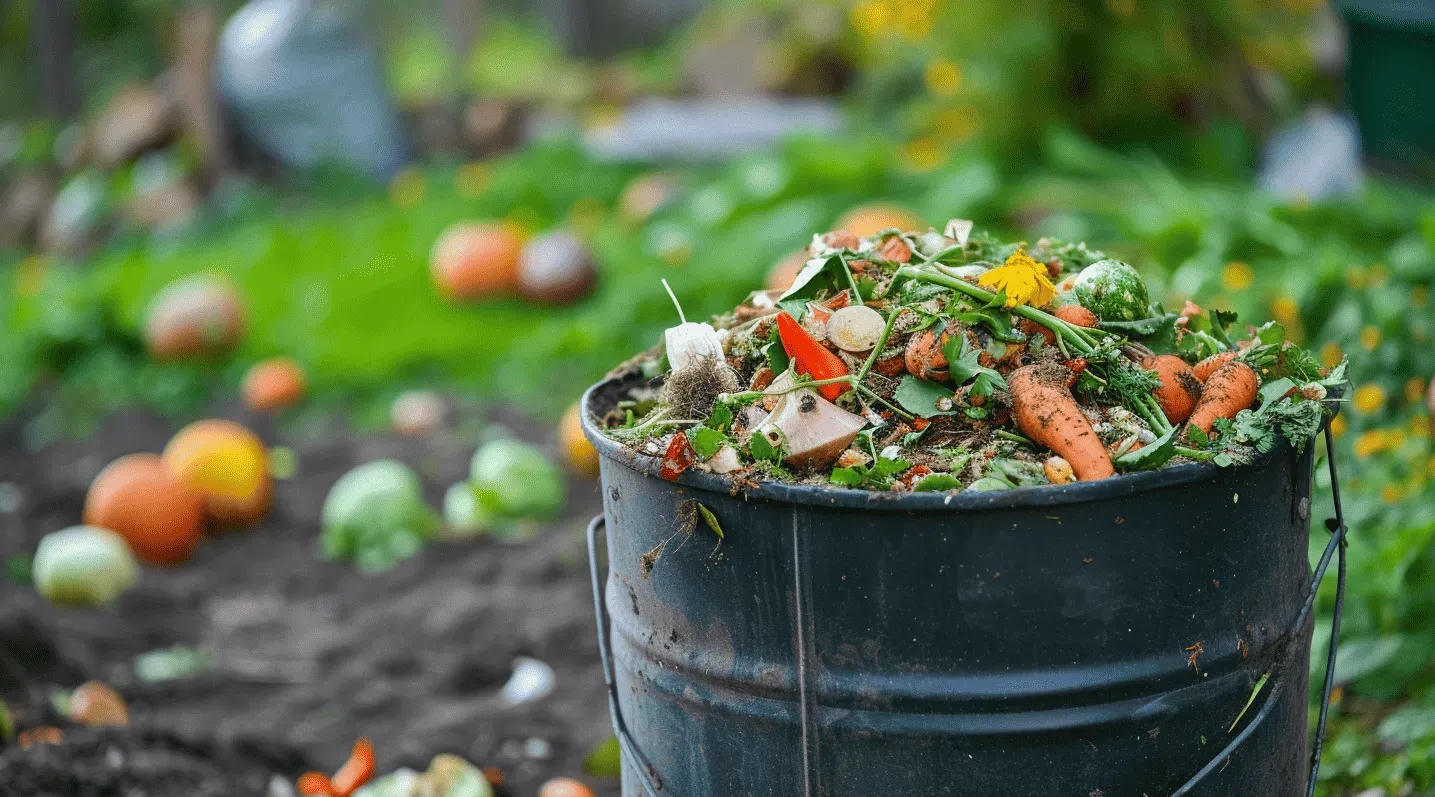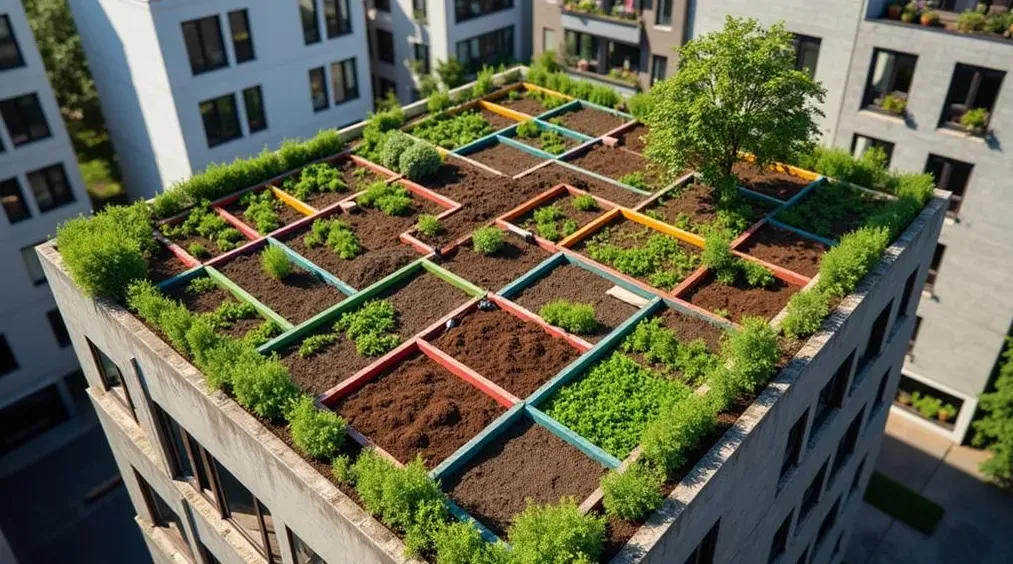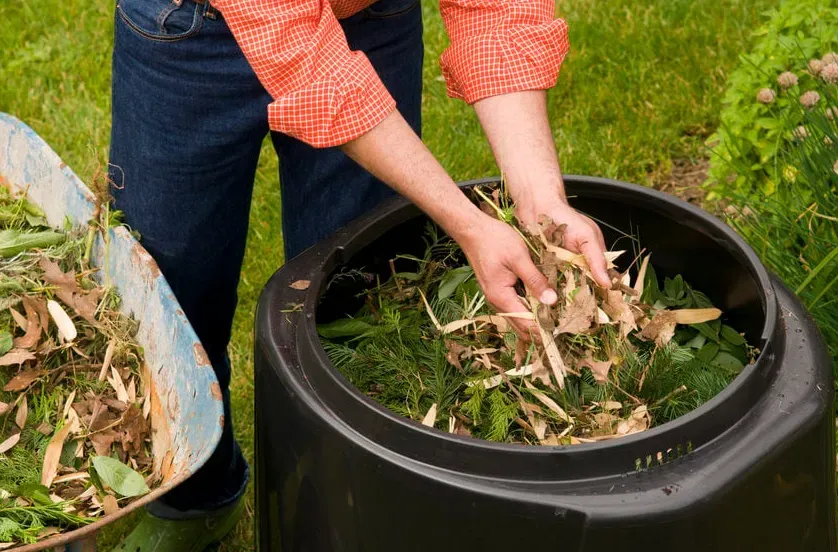Creating a Sustainable and Eco-Friendly Home: A Guide to Waste Management & Composting in Urban Apartments

By
Shrusti Naik
Posted on September 10, 2025. 10 mins

Creating a Sustainable and Eco-Friendly Home: A Guide to Waste Management & Composting in Urban Apartments
Introduction

India’s cities are expanding at an unprecedented pace. By 2030, nearly 40% of the population will live in urban areas, generating over 165 million tonnes of municipal solid waste annually (Source: Invest India, 2024). Much of this waste ends up in landfills, creating mountains of garbage that contribute to air pollution, groundwater contamination, and methane emissions. Against this backdrop, the question arises: what does sustainable development mean in everyday life, and why does it matter for India’s future?
For homeowners and apartment dwellers, sustainability begins not in policy documents, but in kitchens, balconies, and society bins. Composting and responsible waste management are not only eco-friendly practices, they are the foundation of sustainable development at the household level. Also read Eco Friendly Homes: A Comprehensive Guide to Living Sustainably
Understanding Sustainable Development in the Indian Context
At its core, sustainable development means meeting present needs without compromising the ability of future generations to meet theirs (Source: UNDP India, 2024). It integrates three pillars: economic growth, environmental protection, and social equity.
Why is sustainability so important for India’s development? Because unchecked urbanization risks overwhelming the environment. From Delhi’s smog to Bengaluru’s waste crises, the costs of unsustainable growth are visible. Composting, waste segregation, and zero-waste living may seem small, but when adopted at scale, they directly reduce landfill pressure, improve soil health, and cut greenhouse gas emissions—aligning household actions with national climate goals. Take a look at Sustainable and Energy-Efficient Home Solutions Designed for Indian Climates
Why Urban Waste Management Starts at Home
In Indian cities, household waste accounts for nearly 60% of municipal solid waste (Source: Statista India, 2024). A large portion of this is biodegradable, vegetable peels, fruit scraps, leftover food, yet it often gets mixed with plastics and dumped.
Here lies the problem: when organic waste ends up in landfills, it decomposes without oxygen, releasing methane, a greenhouse gas 28 times more potent than CO₂ (Source: Economic Times, 2025). By composting at home, residents can divert up to 50% of household waste from landfills, turning a liability into a resource.
This is sustainability in action: individual choices ensuring collective well-being. Also read The Rise of Green Buildings in Mumbai and Its Impact on the Future
Composting Methods for Indian Apartments
Not every urban home has space for a backyard. Fortunately, India now offers scalable, apartment-friendly composting solutions.
Aerobic Composting: This method uses oxygen to break down kitchen waste into nutrient-rich compost. Simple home compost bins or DIY buckets with air holes are sufficient.
Anaerobic Composting: Suitable for smaller spaces, this process uses sealed containers without oxygen. Though slower, it requires minimal intervention.
Vermicomposting: Increasingly popular in Indian homes, vermicomposting uses earthworms to convert organic waste into high-quality fertilizer. With demand rising, “vermicompost” has become a sought-after product online, reflecting growing awareness (Source: Moneycontrol, 2025).
Each method demonstrates that sustainable living is not limited by space constraints, it adapts to them.
Besides, read about The Increasing Popularity Of Eco Friendly Home Products
The Economic and Environmental Payoff
Eco-friendly homes are not just good for the planet, they are financially sensible. For example, using home-made compost reduces dependence on chemical fertilizers, which are growing more expensive each year (Source: Business Standard, 2024). Societies adopting composting collectively also save on waste collection costs.
Environmentally, the benefits are even clearer:
- Reduced methane emissions from landfills
- Improved soil health in urban gardens and green spaces
- Contribution to India’s net-zero targets for 2070 (Source: RBI, 2024)
Here, sustainability directly supports development. A city with reduced waste management costs can redirect funds toward infrastructure, housing, and public services.
Zero-Waste Living: Beyond Composting
Composting is just one step in a broader shift towards zero-waste living. Segregating recyclables, reducing single-use plastics, and choosing eco-friendly household products all complement composting.
In fact, sustainable development at home often begins with a simple question: can this waste be avoided, reused, or repurposed? If yes, it moves the household closer to a zero-waste model, easing the burden on both municipalities and the environment. You might as well be interested in Sustainable Home Decor that talks about Eco-Friendly Products in Interior Design
Conclusion

Sustainable development is often discussed in terms of global agreements and national policies. But its most practical expression lies in everyday life, in how we manage what we throw away. For India’s urban residents, composting is not just about kitchen waste, it is about building resilient cities that balance growth with environmental care.
By embracing waste segregation, composting, and zero-waste practices, homeowners can ensure that development today doesn’t compromise the future. In the process, they not only reduce pollution but also redefine what it means to live in a truly sustainable home.
For those in pursuit of their dream home, investment opportunities, or a sanctuary to call their own, Jugyah provides top housing solutions with its intelligent technology.
Frequently Asked Questions
Q1. What do you mean by sustainable development? Sustainable development means meeting current needs without harming the ability of future generations to meet theirs. It balances economic growth, environmental care, and social well-being.
Q2. Why is sustainability important for development in India? Because India’s rapid urban growth brings risks like waste crises, water scarcity, and pollution. Sustainability ensures that development remains long-term and livable.
Q3. How can composting contribute to sustainable living? By diverting kitchen waste from landfills, composting reduces methane emissions, improves soil health, and provides a low-cost alternative to fertilizers.
Q4. Is composting possible in small Indian apartments? Yes. With aerobic bins, anaerobic setups, or vermicomposting units, composting can be adapted to balconies, utility areas, or even under-sink spaces.
Q5. What is zero-waste living, and how does it relate to composting? Zero-waste living focuses on reducing, reusing, and recycling waste. Composting is a key part of this approach, as it tackles biodegradable waste, the largest component of urban household garbage.